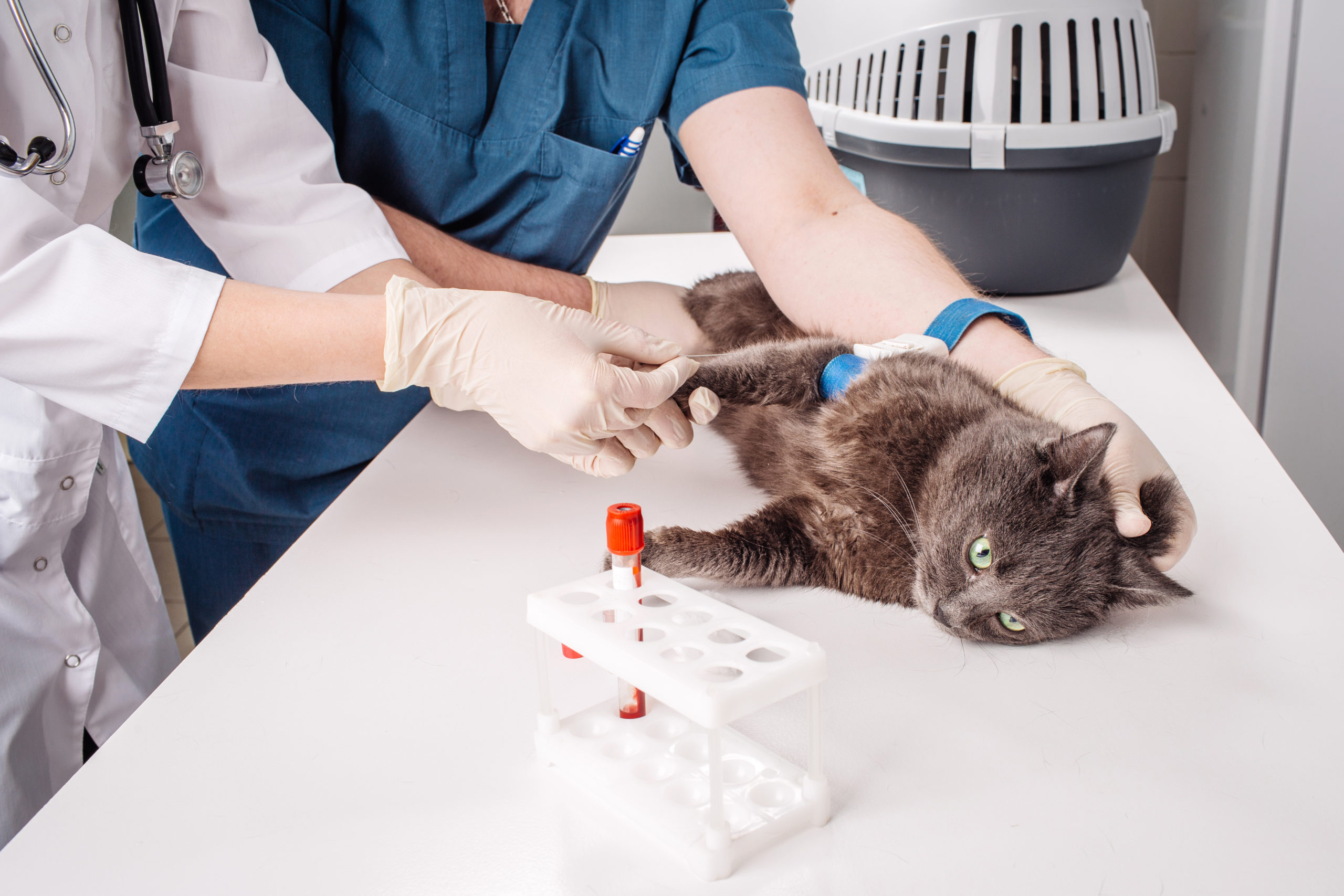Dogs suffering from severe blood loss or blood diseases can receive blood transfusions from another healthy dog to help them recover.
Dogs that are negative for DEA 1 are preferred for donating blood because their blood can be safely transferred to dogs that are negative or positive for DEA 1.1 or DEA 1.2.
However, DEA 1 negative dogs aren’t truly “universal donors” because a dog may be positive for another blood type that might cause an issue.
To make sure there won’t be a serious immune reaction to any of a donor dog’s blood types, the veterinarian will do another test called “crossmatching.” This test checks the overall compatibility of donor and recipient blood.
After confirming DEA 1 blood type and running a crossmatching test, a veterinarian can typically determine which type of blood will be the most successful for the dog receiving the transfusion.

The ideal dog for donating blood is:
- Over 50 pounds (and at a healthy weight for their size; larger dogs can donate a larger volume of blood more easily and frequently than smaller dogs)
- Up to date on their vaccines
- Healthy (with no heart murmur)
- Not on any medication
- Free of infectious disease, parasites and blood-borne diseases
- Calm (able to sit quietly for 10-15 minutes while blood is being collected)
- DEA 1 Negative
If the DEA 1 blood type is compatible and there’s no immune response seen with the crossmatching tests, then it’s safe to go ahead with the dog blood transfusion.

